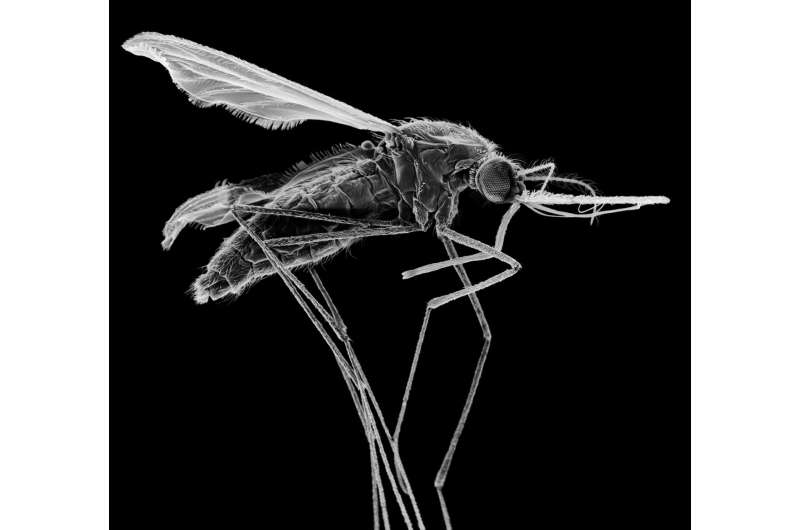Gene drives work faster than non-drive approaches to control problem insects

When controlling mosquitoes that spread malaria, gene drives, which force genetic changes to proliferate in a population, are faster and more efficient than simply releasing mosquitoes that are immune to the parasite, according to a new study published December 19th in PLOS Genetics by Anthony James at University of California, Irvine and colleagues.
Genetic approaches are the latest strategy for controlling mosquito populations that spread the malaria parasite and viruses like dengue, chikungunya fever, yellow fever and Zika. In the lab, scientists have attempted to control the numbers of mosquitoes that can transmit these infections by introducing insects engineered to carry anti-disease genes and through gene drives, where engineered individuals also carry genes that change the rules of inheritance, increasing the odds that the changes are passed on and spread throughout the entire population.
In the current study, researchers simulated non-drive and gene-drive mosquito releases using small cage trials to explore the efficacy of delivering anti-malaria genes to a mosquito species that commonly carries the parasite. They demonstrated that both approaches are effective, but the gene drive was more efficient because it needed only a single release of a small number of insects. In contrast, the non-drive simulation required repeated, larger releases. The drive system targets a gene that affects female mosquito survival after it feeds on blood, and drove mosquito populations to extinction, except in one simulation where mutations popped up that prevented the engineered genes from being passed on effectively.
"The results may seem obvious to those working in this field, but it is important to get empirical evidence to support predictions, especially in this newly-emerging science," says Dr. James. "Gene drives are expected to reduce costs of mosquito control and contribute towards the eradication of some of the vector-borne diseases. Having an effective delivery system in hand is a big step forward, now we need to make sure that the 'cargo', the genes that interfere with the pathogens, function as designed, and that is what we are working on now."
The findings suggest that gene drives will be the most efficient and affordable genetic approach for controlling mosquito populations, assuming that they are approved for use in the wild. The study also demonstrates that preliminary laboratory cage trials can help scientists to test and improve the design of engineered insects before they are released. The researchers point out that future gene drive experiments focused on malaria prevention should also involve mosquitoes infected with the parasite to better simulate actual conditions.
More information: Pham TB, Phong CH, Bennett JB, Hwang K, Jasinskiene N, Parker K, et al. (2019) Experimental population modification of the malaria vector mosquito, Anopheles stephensi. PLoS Genet 15(12): e1008440. doi.org/10.1371/journal.pgen.1008440
Journal information: PLoS Genetics
Provided by Public Library of Science




















